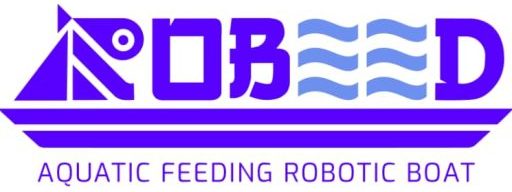
Sustainable Fish Feeding with Solar Power
The world of fish farming depends more and more on sustainability and solar power efficiency. The industry is changing as fish feeders powered by the sun are proving to be a more environmentally friendly and economically efficient way to feed fish as compared to the older methods of feeding. These sophisticated systems not only reduce the energy consumption but also provide regular and precise feeding, which makes the fish healthier. In this post, we will examine how solar-powered feeders are transforming aquaculture to favor both the environment and fish farm owners.
Sun-Powered Feeding for Healthy Fish
In this section, we will present the advantages of applying solar-powered fish feeders in aquaculture. We will discuss the benefits of using such feeders to maintain the balanced nutrition of the fish, stop wasting a lot of feed, and provide the fish with healthier nutrition. Because the process becomes automated, we can feed them in the same way and at the same dose. Each of these features will be further explored in the following sections, and we will discuss how they enhance efficiency and sustainability for fish farms.
Automated Feeding for Balanced Nutrition
Solar fish feeders maintain proper and regular feeding of fish, which is essential for attaining balanced nutrition. The feeding process can be automated to exclude human error and serve fish their optimal portions to support healthy growth.
Aligning Feeding with Natural Light Cycles
Feeding your fish when it’s naturally light helps them stay on their natural schedule and digest food better. It is a naturalistic feeding strategy that promotes total growth and behavior.
Reducing Waste and Improving Water Quality
Solar feeders also reduce feed waste common in traditional methods by minimizing the quantity of excess feed. Uneaten food is reduced, which means that the water will be cleaner, fish will be healthier, and less frequent water changes will have to be performed.
Maintaining Fish Health During Your Absence
Automated solar-powered feeders ensure regular feeding times even in the absence of the farm owners. This decreases stress to the fish and creates adequate care, supports better health, and growth
Eco-Friendly and Cost-Effective Feeding
Using solar energy means we won’t rely as much on older power sources, and it will also cut down on how much energy we use overall. It is an environmentally friendly practice that conserves natural resources and reduces operational costs, making the feeding process more cost-efficient and sustainable.
The Benefits of Solar Feeders for Fish Farms
In this area, we are going to speak about the practical and monetary benefits of the application of solar-powered feeders in fish farms. Due to solar technology, energy costs are reduced, and the health of the fish is improved. We will find out how these benefits are realized on a wide scale across various farm acreages and farm operations, enabling farmers to realize economic and environmental sustainability.
Lower Energy Costs for Fish Farmers
The use of solar-powered fish feeders greatly minimizes the amount of energy used greatly, as solar energy is renewable and traditional electricity is not. This change helps lower electricity bills. Enhances fish farming, becoming less expensive in the long term. In large fish farms where feeding systems use much energy, significant savings in operation costs are realized.
Through Consistent Feeding Practices and Health
Accuracy of feeding is one of the biggest factors in fish growth. Solar-powered systems dispense precise rations at the correct times, reducing fluctuation impacting fish health and improving aquaculture efficiency overall.
Sustainable Practices: Minimizing Carbon Discharges
Solar-powered feeders are a more environmentally friendly option to traditional energy sources and allow fish farms to decrease their carbon footprint. These systems run on clean, renewable energy, which helps to preserve the environment. Use of solar technology will enable the farms to be in line with the global sustainability initiatives.
Reliability and Strength of Solar-Powered Systems
You can count on solar feeders, no matter the weather. They’re built to last and need less maintenance, guaranteeing consistent performance. These feeders stay reliable, even in distant locations, ensuring the fish feeding process runs without a hitch. Fish farms can rely on solar energy for constant operation, year after year.
Supporting Sustainable Growth for Fish Farms
Sustainability is of utmost importance when it comes to fish farming, and a solar-powered fish feeder allows the farms to grow without having to use more energy. These systems facilitate long-term growth due to the low operation cost and ability to match the rising production needs. Solar energy makes farms more financially and environmentally sustainable as they increase in size.
Flexibility for Small and Large-Scale Fish Farms
Solar feeders provide flexibility to fish farms of any size, ranging from private ponds to large-scale commercial farms. The systems are readily adaptable, and their flexibility allows them to provide solutions to different feeding requirements. Solar feeders work well for farms of any size, from small ponds to large operations.
Closing Thoughts
Convenience is not the only benefit of solar-powered fish feeders, as they also represent a transition to cleaner and smarter aquaculture. The systems also aid fish farms in reducing energy consumption, feed waste, and enhancing fish health due to the accuracy and uniformity of feeding. The technology suits farms at any scale and promotes both long-term environmental and financial objectives. Implementing solar-powered technologies reinforces aquaculture’s capacity to fulfill future demands and remain anchored in sustainability.
Conclusion
The switch to solar-powered feeding systems is part of a larger trend within aquaculture to adopt innovation and sustainability. As technology improves, fish farmers are discovering more intelligent ways of maintaining their stock and making better use of resources. Solar power has both environmental and economic benefits and thus is an attractive option for the modern fish farm. Ongoing uptake of the systems will allow expansion and mold a stronger and healthier future for aquaculture.

